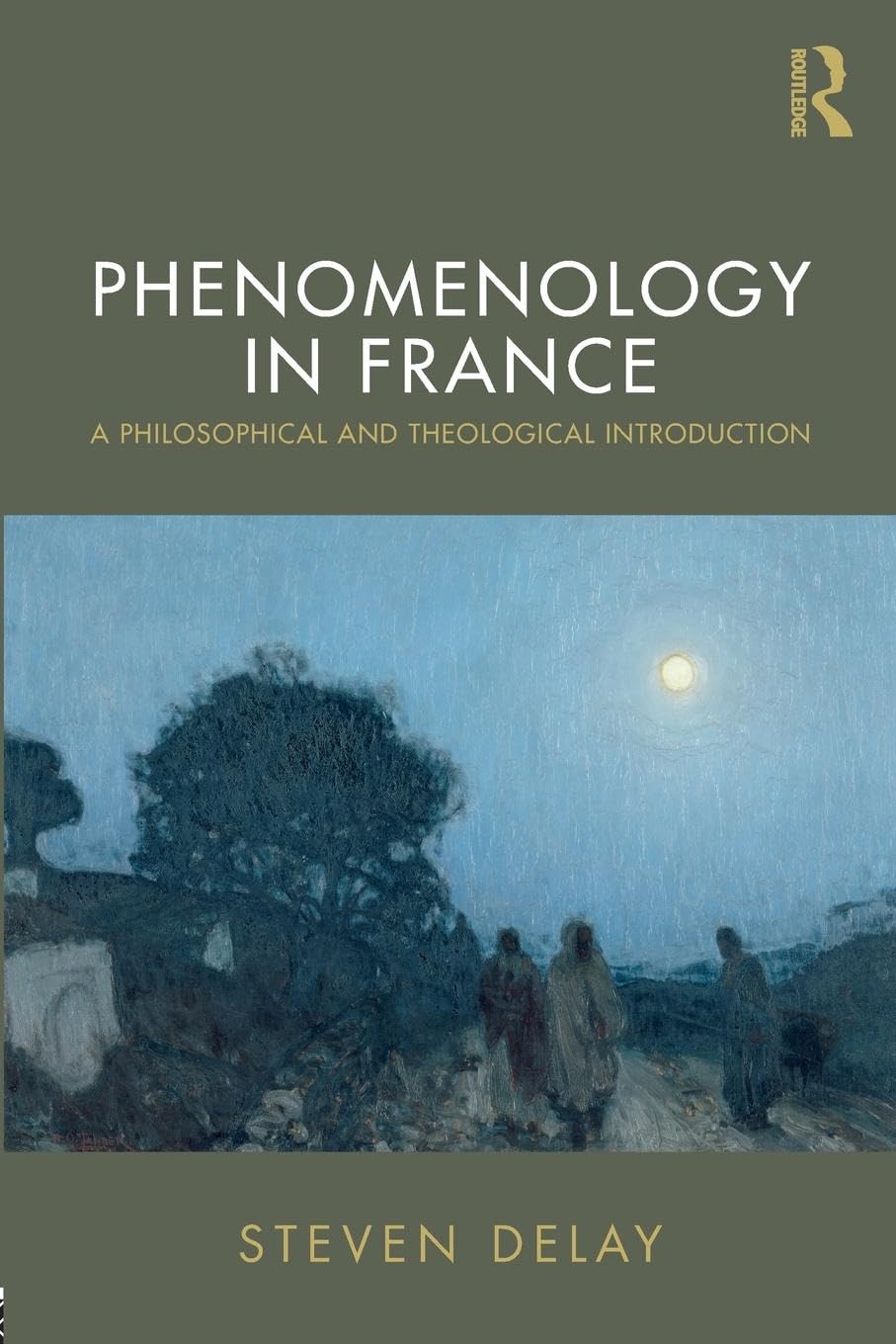Phenomenology in France: A Philosophical and theological Introduction
Phenomenology in France: A Philosophical and theological Introduction is backordered and will ship as soon as it is back in stock.
Couldn't load pickup availability
Genuine Products Guarantee
Genuine Products Guarantee
We guarantee 100% genuine products, and if proven otherwise, we will compensate you with 10 times the product's cost.
Delivery and Shipping
Delivery and Shipping
Products are generally ready for dispatch within 1 day and typically reach you in 3 to 5 days.
Book Details:
-
Author: Steven DeLay
-
Brand: Routledge
-
Edition: 1
-
Binding: Paperback
-
Number of Pages: 254
-
Release Date: 24-08-2018
-
EAN: 9781138244979
-
Languages: English
About The Book:
"Phenomenology in France: A Philosophical and Theological Introduction" by Steven DeLay offers an insightful introduction to the development of French phenomenology after the major figures like Husserl, Heidegger, Sartre, and Merleau-Ponty. While phenomenology has a rich history rooted in the early 20th century, DeLay examines how the discipline evolved after these influential thinkers, particularly focusing on the underexplored and creative contributions of French philosophers post-1945.
Key Features:
-
Husserlian and Heideggerian Background:
The book starts with an exploration of the foundational concepts in phenomenology, particularly the work of Edmund Husserl and Martin Heidegger. It then traces how their ideas were received and transformed in France, setting the stage for the later developments in the field. -
Focus on Key French Phenomenologists:
DeLay introduces readers to the work of relatively unfamiliar philosophers like Jean-Louis Chrétien, Michel Henry, Jean-Yves Lacoste, Jean-Luc Marion, and others. He explores their unique contributions, such as Henry's material phenomenology and Marion's phenomenology of givenness, shedding light on their impact on both philosophy and theology. -
Exploration of Philosophical and Theological Intersection:
One of the book's most fascinating aspects is how it shows the intersection of phenomenology with theology. Philosophers like Levinas, for instance, present ethics as first philosophy, and Lacoste’s phenomenology of liturgical man integrates religious experience into the study of phenomenology. This melding of philosophy and theology opens up new avenues for understanding human existence and experience. -
Relevant to Contemporary Philosophy and Theology:
DeLay not only traces the history of French phenomenology but also assesses its current relevance. He explores how phenomenology challenges the boundaries between philosophy and theology, providing a fresh perspective on both fields. -
Practical for Students and Scholars:
This book serves as an essential resource for students and scholars of phenomenology, continental philosophy, theology, and related fields like literature and French studies. It provides a thorough introduction to post-1945 French phenomenology while also offering a critical analysis of the field’s future.
Who Should Read This Book:
-
Students and Scholars of Phenomenology:
Ideal for those seeking to understand the development of phenomenology after its classic period, especially in France. It’s a great resource for undergraduates and graduates in philosophy, theology, or related disciplines. -
Theology and French Studies Students:
Those studying theology, literature, and French philosophy will find this book indispensable, as it connects phenomenological thought to religious and cultural issues. -
Researchers and Practitioners in Continental Philosophy:
Those working in or exploring the realms of existentialism, phenomenology, or post-structuralism will benefit from the clear and rigorous presentation of the evolution of French phenomenology.
"Phenomenology in France: A Philosophical and Theological Introduction" is a crucial work for anyone seeking to understand the development of French phenomenology and its intersection with theology, offering a balanced overview of its key figures and ideas.





